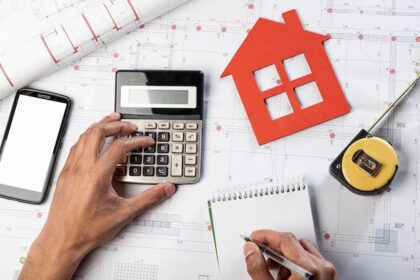The United Arab Emirates (UAE), long recognized for its rapid development, towering skyscrapers, and vast deserts, is now becoming equally renowned for its efforts toward environmental sustainability. Despite its harsh arid climate and status as one of the world’s largest oil producers, the UAE has emerged as a regional leader in implementing innovative sustainability solutions. From clean energy projects and smart urban planning to waste management and water conservation, the country is crafting a new identity as a champion of green development.
The Urgency Behind Sustainability in the UAE
The UAE faces several environmental challenges that make sustainability not just an option, but a necessity. With limited freshwater resources, high per capita carbon emissions, and a dependence on desalination and imported food, the pressure on the nation’s natural systems is significant. Furthermore, climate change is expected to exacerbate these challenges, threatening everything from biodiversity to infrastructure resilience.
Recognizing these risks, the UAE has made sustainability a national priority. The UAE Vision 2021 and the more recent UAE Net Zero 2050 initiative outline the country’s commitment to balancing economic growth with environmental responsibility.
Renewable Energy: A Cornerstone of the Strategy
At the heart of the UAE’s sustainability strategy lies its ambitious investment in renewable energy. The country aims to generate 50% of its electricity from clean energy sources by 2050. This effort is most notably embodied in projects like Masdar City, Mohammed bin Rashid Al Maktoum Solar Park, and the Barakah Nuclear Energy Plant.
Masdar City, developed by the Abu Dhabi Future Energy Company, is a low-carbon urban development powered entirely by renewable energy. It serves as a global hub for clean-tech companies and research institutes, providing a model for sustainable urban living in desert environments.
The Mohammed bin Rashid Al Maktoum Solar Park in Dubai is among the world’s largest solar parks. With a projected capacity of 5,000 megawatts by 2030, it will reduce carbon emissions by millions of tons annually. The project showcases how a desert nation can harness its most abundant natural resource—the sun—for sustainable development.
Additionally, the Barakah Nuclear Energy Plant, the first in the Arab world, represents a significant step toward reducing the nation’s reliance on fossil fuels. When fully operational, it will provide up to 25% of the UAE’s electricity needs without producing carbon emissions.
Smart Cities and Urban Innovation
Urban planning and smart city development are also key to the UAE’s sustainability goals. Cities like Dubai and Abu Dhabi are incorporating advanced technologies and green building practices to reduce their environmental impact.
The Estidama Pearl Rating System in Abu Dhabi and the Dubai Green Building Regulations and Specifications set standards for energy efficiency, water conservation, and indoor environmental quality. These regulations are helping transform the construction industry and ensure new developments are built with sustainability in mind.
Smart mobility is another area of innovation. The UAE is investing in electric vehicles, autonomous public transportation, and digital traffic management systems to reduce emissions and congestion. Dubai’s Roads and Transport Authority (RTA) has introduced initiatives to electrify taxis and promote car-sharing and micro-mobility services.
Water Conservation and Desalination Innovation
Water scarcity is one of the UAE’s most pressing environmental issues. The country relies heavily on energy-intensive desalination, which presents both environmental and economic challenges.
To tackle this, the UAE is exploring solar-powered desalination plants, improved water recycling technologies, and water-efficient agricultural practices. The Water Security Strategy 2036 outlines a long-term vision to ensure sustainable and continuous access to water in all circumstances, including emergencies.
Public awareness campaigns are also being rolled out to encourage residents and businesses to reduce water usage, while smart meters and sensors are being deployed to monitor and detect leaks.
Waste Management and Circular Economy
Another critical component of sustainability in the UAE is waste management. The country has historically had high levels of waste per capita, but significant reforms are now underway to promote recycling and reduce landfill use.
Dubai and Abu Dhabi have introduced ambitious waste-to-energy projects, such as the Warsan Waste-to-Energy Plant, which will convert municipal solid waste into electricity. This reduces landfill dependency and supports the country’s clean energy goals.
The circular economy model is being integrated into business practices to encourage the reuse, recycling, and repurposing of materials. The UAE Circular Economy Policy, adopted in 2021, aims to optimize resource use and promote sustainable consumption and production patterns.
Policy and International Cooperation
The UAE government plays a central role in driving sustainability, supported by strong policy frameworks and regulatory bodies. Ministries such as the Ministry of Climate Change and Environment (MOCCAE) are actively involved in implementing climate adaptation and mitigation strategies.
International cooperation is another vital element. The UAE is a signatory to the Paris Agreement and hosts global environmental events like COP28, held in Dubai in 2023. These platforms help the UAE share best practices and collaborate on global sustainability challenges.
Education and Public Engagement
No sustainability effort can succeed without public involvement. Recognizing this, the UAE is fostering environmental awareness through education and community programs. Universities are offering specialized degrees in sustainability, renewable energy, and environmental engineering.
Initiatives like Clean UAE, organized by the Emirates Environmental Group, engage citizens in cleanup campaigns and environmental advocacy. Schools and NGOs are playing a growing role in educating the next generation about the importance of preserving the planet.
Conclusion: A Sustainable Vision for the Future
The UAE’s journey toward sustainability is both ambitious and necessary. By investing in clean energy, rethinking urban development, innovating in water and waste management, and fostering a culture of environmental stewardship, the nation is laying the groundwork for a resilient and sustainable future.
While challenges remain—particularly in adapting to a hotter, drier climate—the UAE’s commitment to sustainability solutions offers a compelling model for other nations. In a region often associated with oil and luxury, the UAE is proving that environmental responsibility and economic prosperity can go hand in hand.
For more information click here Sustainability solutions UAE.





